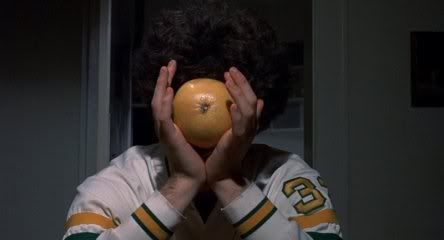It bothers me not knowing what to do next.

Having been such an integral part of the whirlwind success of BBS Productions, Jack Nicholson definitely earned the chance to make his directorial debut for the company. Accordingly, he chose the novel Drive, He Said and adapted it for the screen with author Jeremy Larner (with uncredited assists from Robert Towne and Terrence Malick). It's a two-pronged story about a college basketball player who's expected to go pro (William Tepper) and his radical roommate (Michael Margotta), a proponent of guerrilla theater who's facing the draft and in danger of cracking under the pressure. Tepper doesn't have it any easier since the woman he's in love with (Karen Black) is the wife of one of his professors (a heavily bearded Towne), who seems to know the score but is so infuriatingly non-confrontational that he always talks around the issue. And hard-ass coach Bruce Dern (who is reliably intense as always) is trying his damnedest to spur the team on to victory, which puts him at odds with an increasingly petulant Tepper.
It should come as no surprise to learn that the games are dynamically photographed (by Bill Butler, who went to shoot The Conversation, Jaws and others) and that Nicholson opted to cast actual players in the roles (as opposed to putting actors on the court and having them fake their way through it). The film also reflects the permissiveness of the times by featuring a fair amount of male nudity, particularly in the locker-room scene that follows the first game. That's another area where casting athletes paid off, because they sure weren't shy about being naked in front of each other (and, by extension, the camera crew). If, in the end, the film comes off as a little inconsequential, that's likely the result of the lead character's noncommittal attitude. After all, if he doesn't seem to be that invested in his own future, why should we?